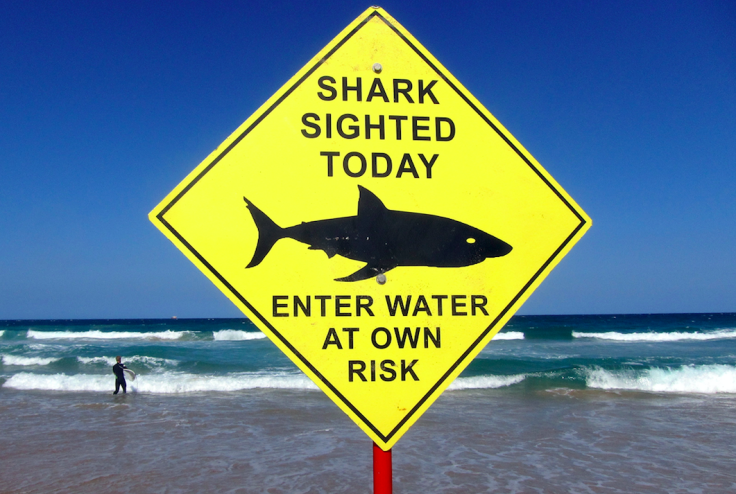Australia's Shark Culling Sparks Condemnation From Marine Conservation Groups

Four tiger sharks swimming through the Whitsundays, Queensland, Australia, were shot and killed over the weekend after two mauling incidents in the area. A woman and a 12-year-old girl were attacked in separate incidents on Thursday and Friday respectively.
Following the incidents, Fisheries Queensland culled four sharks, including one which was 12-foot-long. The victims of the two shark attacks were identified as Tasmanian Justine Barwick, 46, and schoolgirl Hannah Papps.
“The shark has been humanely euthanised and will be taken further out to sea for disposal,” a Fisheries Queensland spokesman said in a statement, referring to the massive shark caught Sunday afternoon. “The three drumlines deployed last week will remain in place over the coming days...The intention is to remove large, dangerous sharks from the area and reduce the risk to people."
“The use of drumlines removes large, dangerous sharks from a specific area and reduces the risk to people, however people should exercise caution," the spokesman added.
Sally McAdam, who lives on a boat on Cid Harbour, said she saw Queensland Fisheries kill two sharks on Saturday.
"We could see the fisheries boat come towards this drumline … we just watched them and they fired another shot at the shark and they tried to pull in the bait line but obviously the shark was still thrashing around from having a big hook in its mouth and it was really quite sad and terrible," McAdam said, according to ABC News.
However, the decision to cull the sharks was slammed by a number of animal rights groups including Shark Conservation Australia and the Humane Society.
“A very shameful day here in Australia. Queensland Fisheries patrol have killed three tiger sharks in Cid Harbour, in the Whitsundays — in the wake of two shark bite incidents,” Shark Conservation Australia wrote online. “This is yet another example of a disgusting knee-jerk reaction that does nothing to improve human safety, and only create a false sense of security for beachgoers. Never mind efforts to educate the public on shark encounters; to have signsup about shark safety; have any of the many nonlethal alternatives employed.”
Humane Society International spokesperson Lawrence Chlebeck said the response was futile.
"We feel that it is a cruel punishment, there's no way of knowing that these are the sharks are the actual culprits," Chlebeck said. "These actions are just providing people with a false sense of security and really aren't addressing the problem."
The group is also seeking legal action over the use of drum lines in the protected Great Barrier Reef.
"That is going to be heard by the Queensland Administrative Appeals Tribunal on January 30 next year," the Humane Society said.
© Copyright IBTimes 2025. All rights reserved.





















